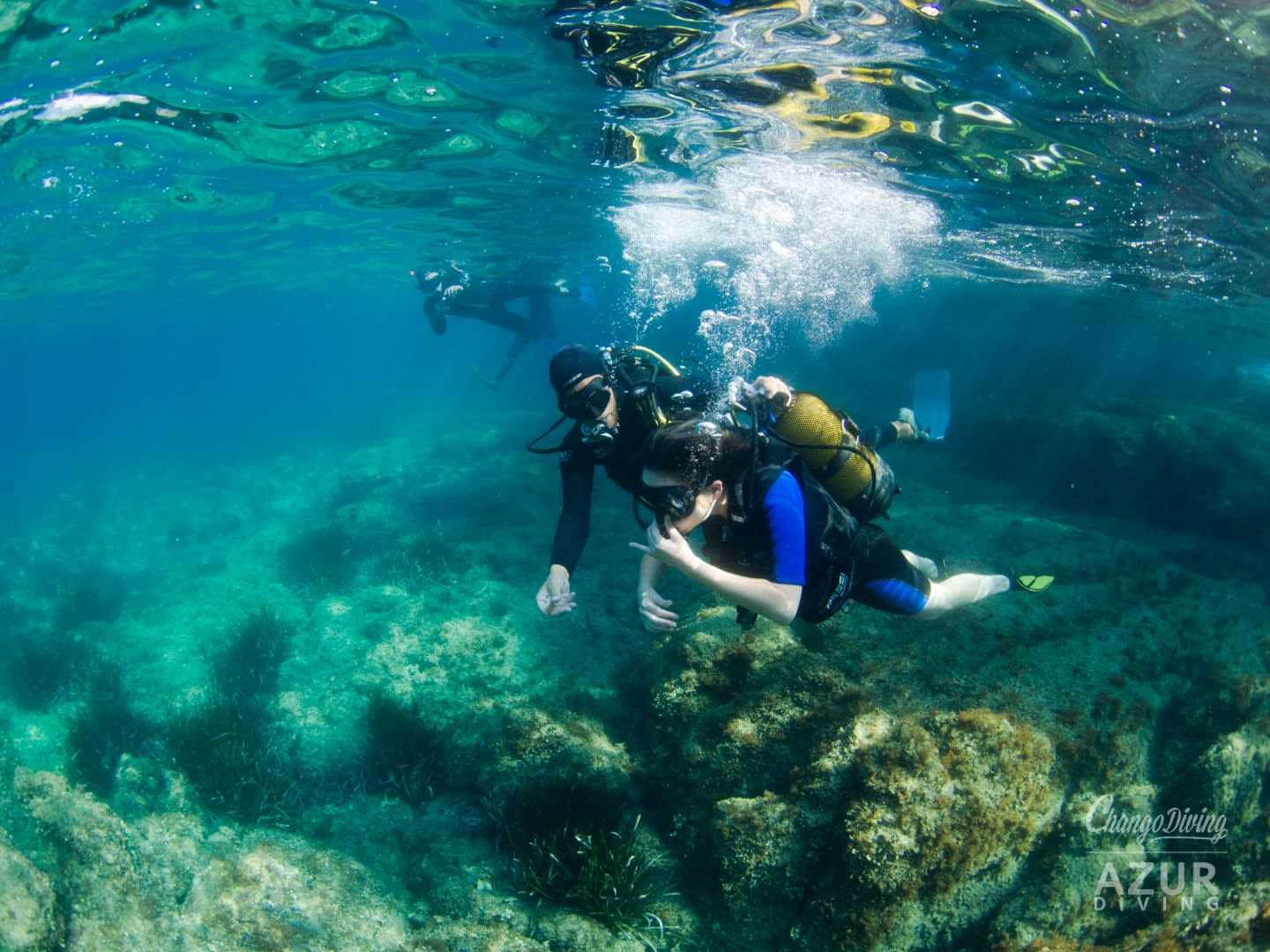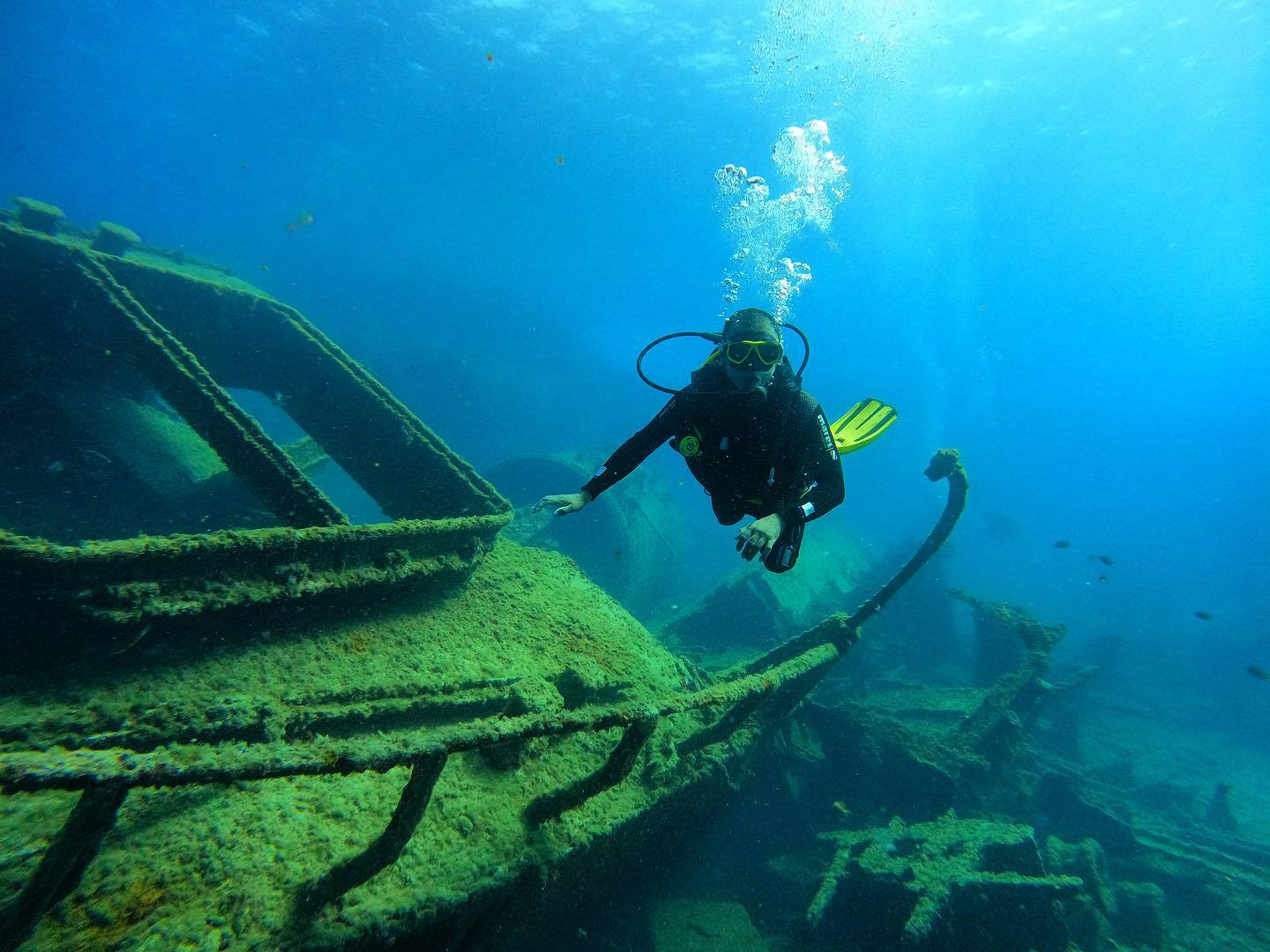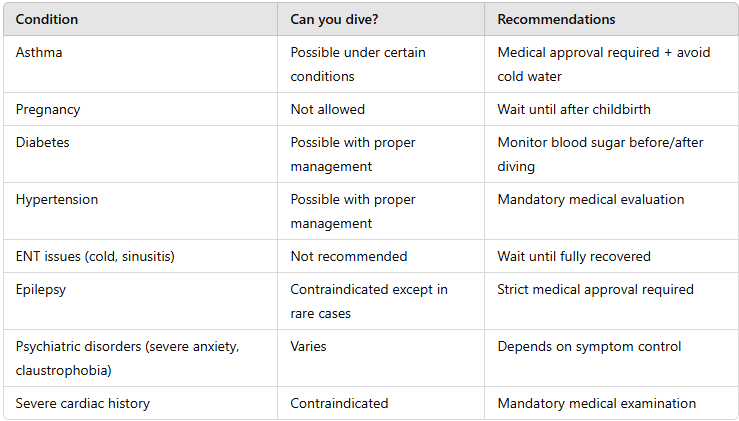
Complete Guide to Scuba Diving
Learn all you need to know before your first scuba dive: Who can dive and who can't? What are the best places?

Ready to dive? Scuba diving is a dream come true, but are you really up for the challenge? A mix of awe and safety measures, this activity comes with specific health requirements. Here’s everything you need to know before taking the plunge!
Welcome to Manawa, the website for booking outdoor activities around the world. From diving to canyoning, we connect adventure enthusiasts with professional local instructors to guarantee unforgettable experiences.
Find out in this article whether scuba diving is for you!
Scuba diving is a fascinating experience that allows you to explore a unique aquatic world, a world of wonder and thrills. The immensity of the blue, the underwater silence and the encounters with marine life offer an unrivalled sense of freedom. However, before jumping into the water, it's essential to make sure you meet the necessary health and safety criteria. Am I fit to dive? What are the contraindications?
At Manawa, we're passionate about outdoor activities and want to help you enjoy diving in the best possible conditions. This article will guide you through the physical, medical and skill requirements for a safe diving experience. Don't forget that only a health professional can validate your fitness to take part in this activity.
But beyond the necessary precautions, we mustn't forget that diving is an incredible source of benefits: it encourages relaxation, connection with nature, exploration and pushing yourself to the limit. So, if you get the chance, don't hesitate to dive into this extraordinary adventure!
The minimum age for a first dive varies according to the organisation:
There is no maximum age for diving. However, good physical and mental condition is essential. A medical check-up is strongly recommended for senior citizens, to avoid any risks related to cardiovascular disease or mobility.
Scuba diving is an activity accessible to all, but requires a minimum level of physical fitness:
Obesity is not an absolute contraindication, but it can accentuate certain risks, such as :
Tip: Before diving, consult a doctor and choose an accessible dive site.

Asthma may be compatible with diving under certain conditions:
Consult your doctor to obtain a certificate of fitness to dive.
No, diving is formally not recommended for pregnant women. It can entail risks for the foetus, particularly problems linked to decompression.
Well-controlled diabetes may allow diving, provided :
A medical assessment is essential.
No, we strongly advise against diving when you're ill. A blocked nose or sinus infection can prevent your ears from equalising, leading to pain and the risk of barotrauma. Wait until you have fully recovered before diving.
Epilepsy is a major contraindication, with a few rare exceptions:
Specialist medical advice is essential before any dive.
Certain cardiovascular diseases prohibit diving, in particular :
Asthma may be compatible with diving under certain conditions:
Medical advice is required before any practice.
No! These substances impair concentration and increase the risk of dehydration and discomfort underwater.
Yes, but there is a time limit before you take the plane:
This delay prevents decompression accidents.
Not recommended. Most clubs require a minimum level of aquatic ability to guarantee your safety. However, some clubs, such as E Ragnole Plongée, allow even non-swimmers to discover diving in complete safety, with appropriate supervision.
Yes, as long as you choose a suitable centre with specific equipment and trained instructors.
Not recommended, except for experienced divers with Solo Diver certification. The buddy system is an essential safety rule.
Yes, scuba diving is accessible to people with disabilities. Many specialised centres, such as Espace Plongée Martinique, offer adapted equipment and trained staff to support divers with motor, sensory or cognitive disabilities. Organisations such as HandiSub and Disabled Divers International (DDI) are also developing specific training courses to enable everyone to discover the pleasures of underwater exploration in complete safety.
People with serious heart problems, uncontrolled epilepsy or who are pregnant should not dive. If in doubt, consult a doctor.
Not always, but it is often requested, especially if there is a pre-existing medical condition.
Yes, but we recommend using a mask with corrective lenses or soft contact lenses.
No, most sharks are harmless and avoid divers.
Scuba diving is much more than just an activity: it's a sensory and emotional adventure, an immersion in a world of calm and beauty. Yes, some precautions are necessary, but the benefits of diving far outweigh any constraints:
Don't let your doubts hold you back from this incredible experience!
If a contraindication prevents you from diving, try snorkelling, an alternative that's just as immersive!
Ready for your first dive? Book your first dive on Manawa now and dive into the adventure!
🔗 Discover also The best destinations for a first dive
🔗 Want to learn more? Guide to scuba diving

Driven by a genuine passion for adventure, I love sharing my discoveries and passing on my tips with simplicity and enthusiasm. My goal: to inspire you, guide you, and spark your desire to experience your own unforgettable outdoor moments.